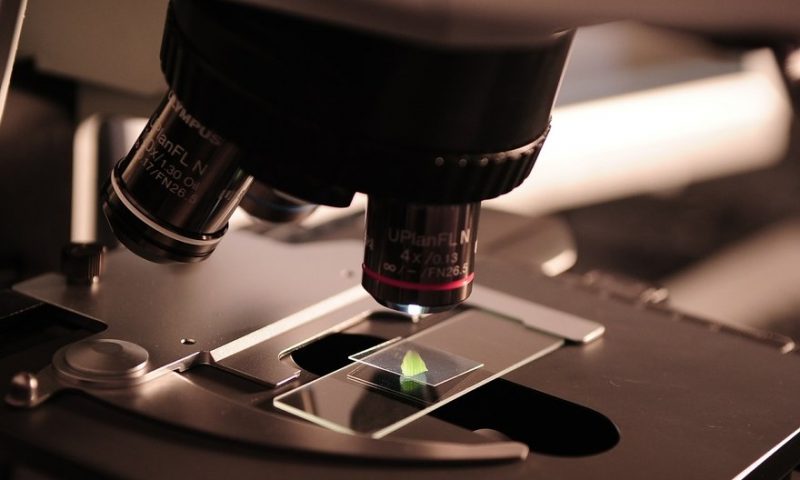Brand-new biotech Anavo Therapeutics knows Big Pharma has been burned by a so-called undruggable target called phosphatases, but it’s here to help now.
The company launched today out of the Netherlands with £20 million ($24 million) in seed funding, ready to give this “strongly neglected” drug target the attention it deserves.
The seed financing was led by M Ventures and INKEF Capital as well as Taiho Ventures and Bioqube Ventures. Anavo plans to use the money to develop a proprietary drug discovery platform in oncology to finally elevate phosphatase medicines.

(Anavo Therapeutics)
Phosphatases first rose to prominence in the pharmaceutical world 25 years ago when attention turned to modulating signal transduction in cells as a way to stop disease, particularly cancer. Phosphatases and kinases regulate activity of signaling pathways in cells by removing or adding a phosphate group from proteins or other molecules. If this system gets out of whack, a multitude of diseases including cancer and diabetes can proliferate.
Early research suggested that the kinase protein turned on these signaling mechanisms, while phosphatases shut things off in a cell. The focus shifted to kinase inhibitors because they were the actionable side of the transaction, and a drug class was born: Eli Lilly’s Olumiant for rheumatoid arthritis and Roche’s Rozlytrek for ROS1-positive non-small cell lung cancer and NTRK fusion-positive tumors are just two of the many examples of drugs on the market from this class already.
Phosphatases emerged as a promising target in diabetes with research suggesting the target could create small-molecule anti-diabetics, rendering insulin obsolete. The pharmaceutical industry went all in, with Novartis, AstraZeneca, Vertex and Incyte all simultaneously discovering two molecules that could be a breakthrough. But that venture “failed spectacularly,” according to Anavo’s Chief Scientific Officer Gerhard Müller, Ph.D.
“That was truly the Waterloo of the phosphatase family, because billions of research funds were burned. Many, many careers were destroyed,” Müller said. “These people are still around in the pharma companies these days, so they still have got the hesitation.”
Anavo now believes they have the science sorted out, and it’s time to take another hard look at phosphatases. The initial thinking—kinases turn things on and phosphatases turn them off—was incorrect.
“The industry stopped 20 years ago showing interest in that target family, but of course the entire academic world continued,” Müller said. Anavo has mined a rich network of scientists to stack its advisory board, including Europe’s “Mr. Phosphatase,” Mathieu Bollen, who is a professor of molecular cell biology at the University of Leuven, and Nicholas Tonks, Ph.D., a professor of cancer research at Cold Spring Harbor Laboratory.

(Anavo Therapeutics)
Through Bollen and Tonks, Müller said Anavo has access to a “whole treasure box of validated targets.” Oncology will be the initial focus for the company’s in-house drug development, but the company plans to export its expertise, according to CEO Birgit Zech, Ph.D.
“Signaling is involved in all kinds of biology, so also in all kinds of disease,” she said.
Rather than pursue indications outside its wheelhouse—Zech said the startup has no business delving into CNS disorders, for example—Anavo would be happy to work with any pharma companies that may have phosphatase targets collecting dust somewhere, afraid to reopen the file.
“What they typically do, they shelve them because they’ve burned their fingers in the past, and who wants to be the first person who raises their hand and says, ‘Hey, here’s a new phosphatase!’” Zech said. Anavo could also seek partnerships such as licensing deals on any targets they develop that could be promising in indications outside of oncology.
Anavo is not the only name in the phosphatase game, although the new company plans to take a broader look at the class rather than at one or two potential molecules.
Novartis has three pipeline projects in early-stage development for a SHP2 inhibitor called TNO155 in solid tumors. Müller also noted a partnership between Revolution Medicines and Sanofi on a very similar molecule they call RMC-4630. He’s not sure how the two competing projects will work together—or not—in terms of intellectual property.
The SHP2 partnership was worth $50 million upfront for Revolution with $500 million in potential milestones. Research conducted by Revolution has shown that SHP2 appears to play a role in cancer growth in up to 45% of non-small cell lung cancers, as well as colorectal and ovarian cancers as well as melanoma. RMC-4630 is currently being tested in a phase 1/2 clinical trial.

